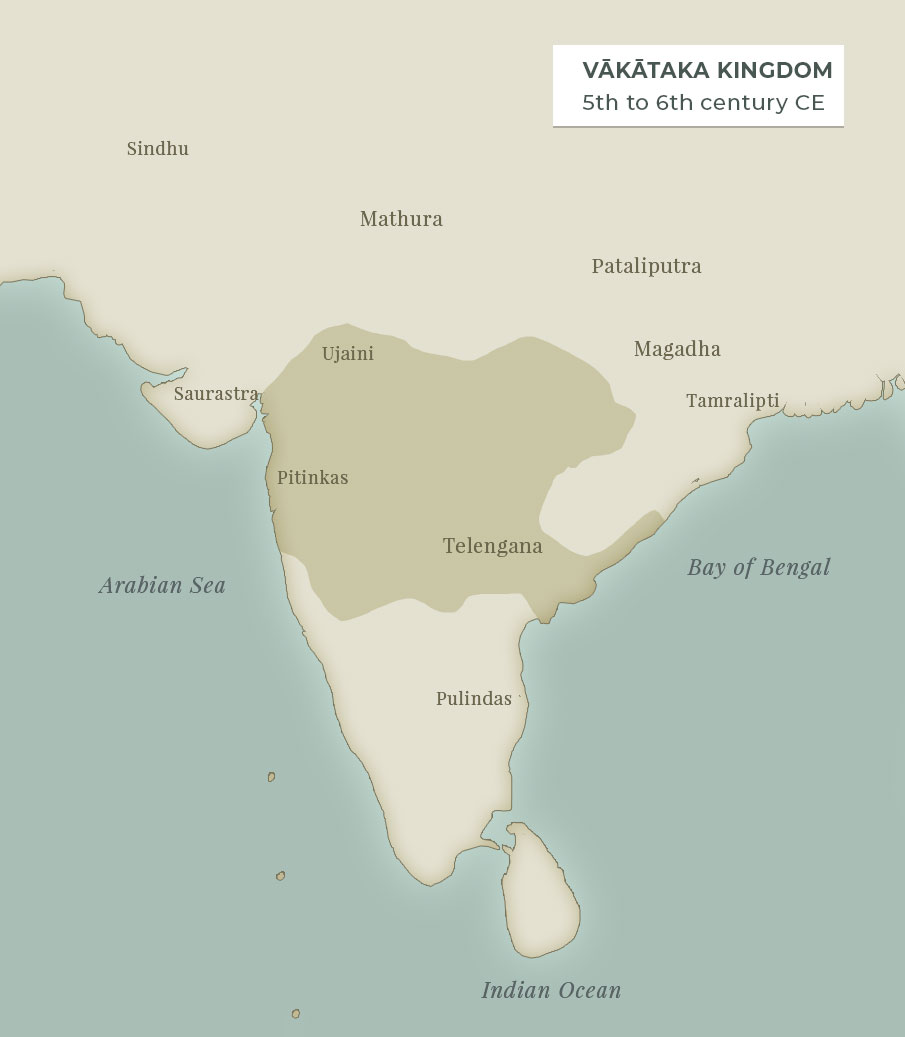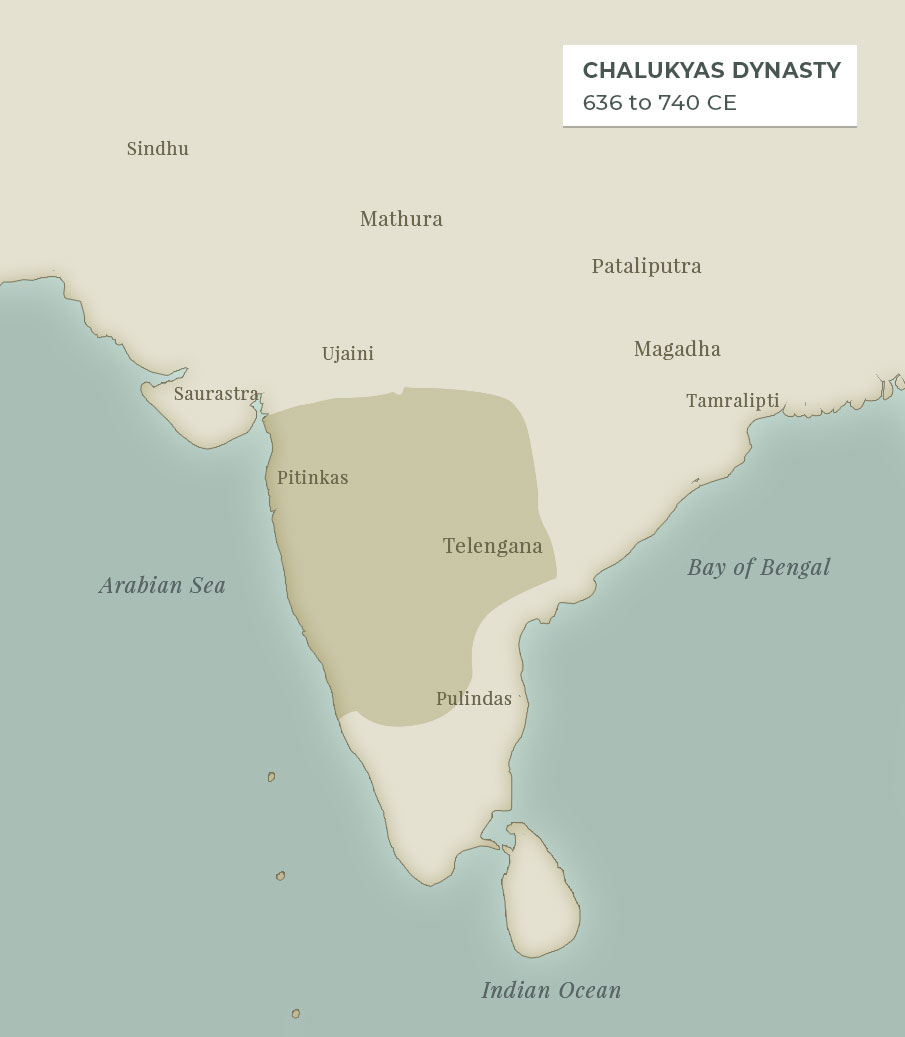

Hyderabad has a rich historical legacy that spans over 2,000 years, dating back to the Common Era. The region of Deccan covering the Deccan Plateau touching both the seas on the east and west including the erstwhile Hyderabad State was ruled by theSātavāhana dynasty from the 3rd century BCE to 3rd century CE. According to the Purānic sources, the Satavahana reign spanned a total period of about 450 years and was considered the first empire in the Deccan. Carving out a state from the later Vākātaka kingdom, the Viṣñukuṇḍin dynasty ruled here during the 5th-6th century followed by Chalukyas. Later, the Kākatīyas of Warangal ruled the region during the 12th-14th centuries before they were deposed by the Tughlaqs in 1323. The Kākatīyas also built the Golconda Fort on the hillock in the vicinity of modern Hyderabad city. The defeat of the Kākatīya dynasty and the consequent Muslim invasion resulted in confusion and anarchy. Thereafter the Musunuri Nayaks, commanders in the Kākatīya kingdom, united the Telugu regions.




